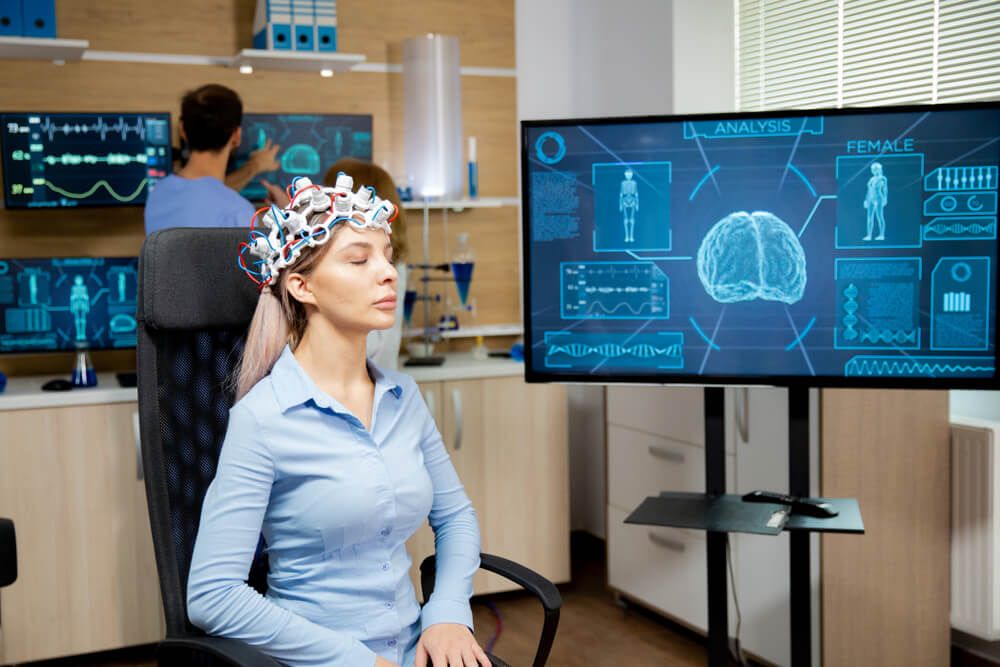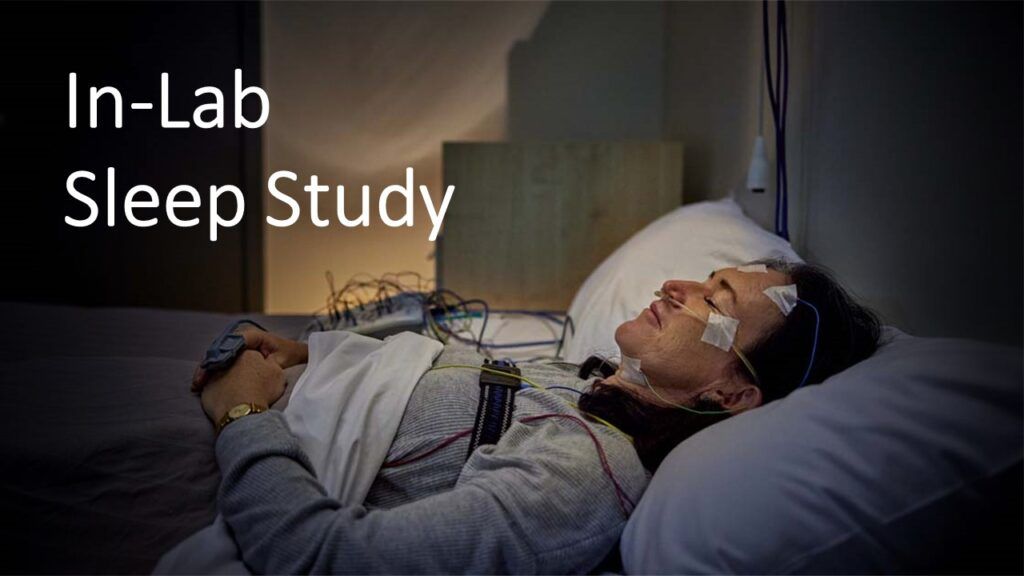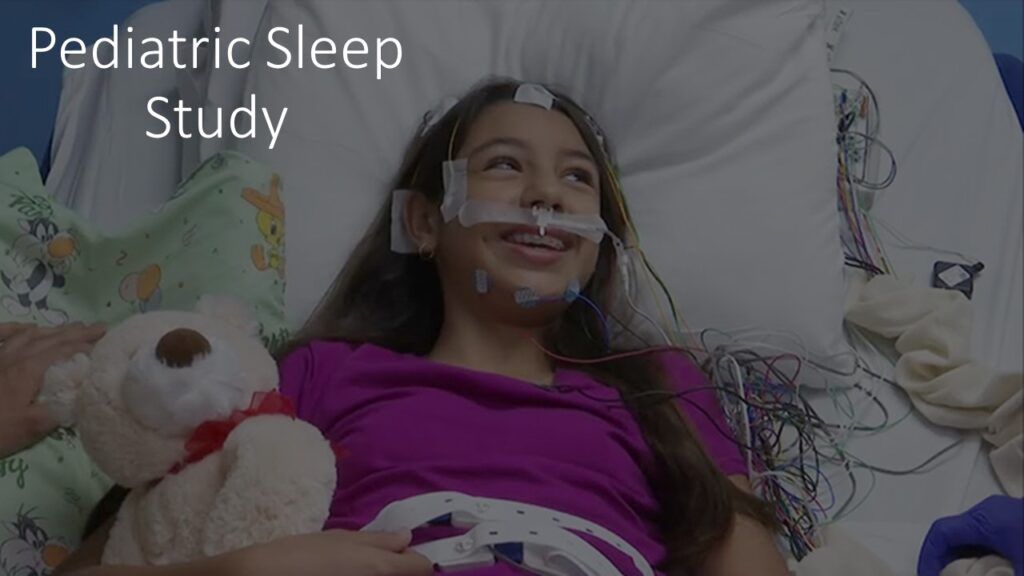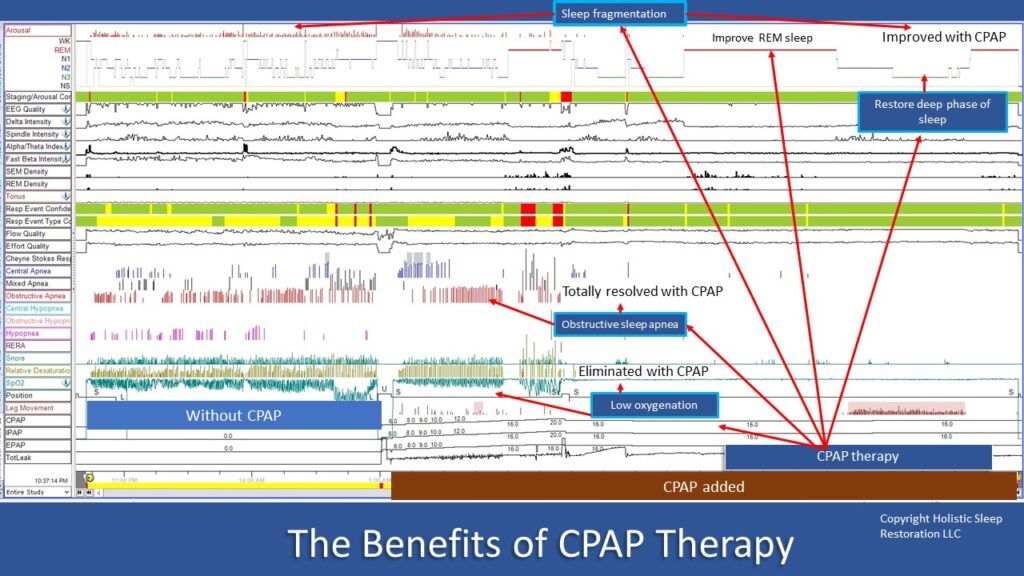
A sleep study, also known as a polysomnography, is a test that is used to diagnose sleep disorders such as sleep apnea, insomnia, restless legs syndrome, and narcolepsy. During an in-lab sleep study, the patient will spend a night at a sleep center or lab, where their sleep will be monitored and recorded by a sleep technologist. The patient will be hooked up to various devices that will monitor their brain activity, eye movement, heart rate, breathing patterns, oxygen levels, and muscle activity. The sleep technologist will observe the patient throughout the night and make adjustments to the devices if necessary. In-lab sleep studies are usually recommended for patients with complex sleep disorders or for those who may need additional monitoring during the test.
It’s safe and painless. Our clinical evaluation includes a nighttime sleep test that monitors all aspects of your sleep. Our sleep technicians will place sensors on your head and chest to record brain waves, eye movements and heart and muscle activity. Additional sensors will measure breathing and blood oxygen levels. While you sleep in a comfortable, private room, we do all the work.


Once we diagnose a sleep-related disorder, we can successfully treat it. Your physician or sleep specialist will design an effective program based on the results from the sleep test. Here’s your opportunity to get back the sleep you’ve been missing. And you’ll vastly improve your mood, relationships, alertness and general well-being.we do all the work.

In general, home sleep studies are best suited for diagnosing obstructive sleep apnea and other respiratory-related sleep disorders. For other sleep disorders or more complex cases, an in-lab sleep study may be necessary for a comprehensive diagnosis. A sleep specialist can help determine which type of sleep study is appropriate for the patient.
Quality sleep solutions are just a click away. Say goodbye to excuses and hello to better sleep. Schedule your Televisit with Holistic Sleep Restoration today!
If your physician has ordered an in-lab sleep study, here’s what you need to know to prepare for the process and what to expect during the study:
The sleep clinic’s billing department will submit the study to your insurance for prior authorization.
Once approved, be aware that you may need to contribute to the co-insurance cost, as insurance might not cover the entire study expense.
Familiarize yourself with the directions provided by the clinic. They offer pictures, videos, and detailed instructions to simplify the process for you.
Pack comfortable clothes for the study. The sleep center provides pillows, blankets, and has a bathroom with a shower for your convenience.
Continue taking your regular medications as prescribed. If you anticipate difficulty sleeping, consult your physician about a sleeping pill prescription.
Upon arrival, electrodes will be placed on various areas of your head, around your eyes, chin, legs, and a belt around your chest and belly.
Your heart rate, oxygen levels, and breathing patterns will be monitored. A nasal prong will be placed on your nose for airflow monitoring.
While some discomfort might be experienced due to the sensors, they are essential for providing accurate information for diagnosis.
If you need to use the restroom during the study, don’t worry; the sleep technician will assist you.
After the study, you can take a shower, and then you’re free to go home or to work.
In-lab sleep studies typically begin around 8:00 PM or 9:00 PM and conclude at 5:00 AM or 6:00 AM.
Remember, the in-lab sleep study is a crucial step toward accurately diagnosing your condition. The discomfort experienced during the study is temporary and helps provide valuable insights for your physician to develop an effective treatment plan tailored to your needs. Your cooperation and patience during this process are greatly appreciated and contribute significantly to the success of your diagnosis and treatment.
Please Note: We Accommodate Two Patients per Night
Patient 1:
Arrival Time: 8:00 PM
Study Ends: 5:00 AM
Patient 2:
Arrival Time: 9:00 PM
Study Ends: 6:00 AM
Multiple Sleep Latency Test (MSLT): The MSLT is a daytime study where clients are given five nap opportunities, each lasting 20 minutes, to detect conditions like narcolepsy. Patients with narcolepsy often enter REM sleep within 15 minutes of sleep onset.
Maintenance Wakefulness Test (MWT): MWT assesses a client’s alertness during the day. It consists of four sleep trials with breaks of two hours.
PAP Naps: These are daytime sleep studies designed to help patients acclimate to CPAP devices.
Diagnostic Polysomnography: This comprehensive nighttime study detects various sleep disorders while clients sleep. It involves monitoring by a sleep technologist.
Split Night Study: The study begins with a diagnostic portion in the first part of the night. If criteria are met, it transitions to a therapeutic portion with a PAP device.
Titration Study: This study assesses the specific device (CPAP, BPAP, ASV) and the correct pressure needed to eliminate most respiratory events while correcting low blood oxygenation.
These studies are conducted at specific times to accurately diagnose sleep disorders and develop appropriate treatment plans for patients.